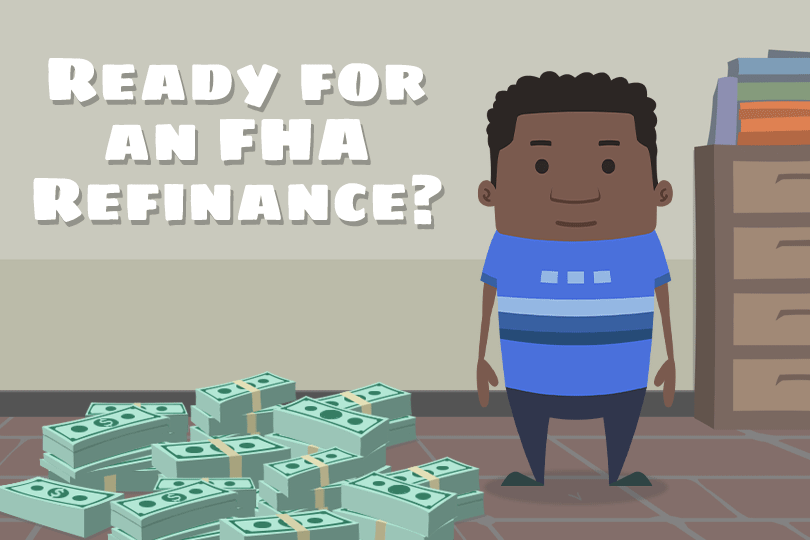When not to Consider Refinancing a Home
March 13, 2024
But there are other smart reasons not to refinance a home or to delay the decision until later. We examine some of the major ones below.
FHA Refinance Loans for Long-Term Homeowners
If you plan to refinance your home loan, you’ll need to save for the closing costs, origination fee, etc. One lender estimates the price of a refinance loan to be between 3% and 6% of the loan amount.
But does paying that fee make sense if you don’t plan to stay in the home for a long time? If you’re considering selling the property in the short term or even a bit longer down the road, you may do well to save the expense of a refinance loan in anticipation of not owning the home any longer.
If you plan to keep the house long-term, the math is different. How much do you save on a monthly mortgage payment by refinancing? Refinancing may make more sense if you aim to lower your monthly bills.
However, refinancing to save money throughout the loan in interest doesn’t work if you don’t stay in the house long term.
Refinance to Renovate?
If you need cash to improve a property, there are multiple FHA options to refinance. The numbers drive a decision to go with an FHA cash-out refinance or an FHA 203(k) rehab loan.
If you want to make standard improvements that don’t require work on load-bearing walls, you can use a smaller 203(k) rehab loan rather than fully refinancing your home with a cash-out loan to do so.
If you need to do extensive work covered under the 203(k) program, applying for a standard 203(k) refinance loan may be wise.
Why? Because an FHA cash-out refinance is limited to 80% of the home's value. A 203(k) rehab refinance loan offers an LTV of “110 percent of the After Improved Value (100 percent for condominiums)” or the appropriate area loan limit according to HUD 4000.1, the FHA Single-Family Lender’s Handbook.
Don’t Refinance to Cover Credit Card Debt
Why give this advice specifically to those who want to apply for an FHA cash-out refinance loan to pay off credit card bills? Because using credit to pay off revolving credit can lead to the borrower running up the same accounts again later, canceling out the first credit card payoff.
It’s better to pay off debt that won’t recur if you do so with an FHA cash-out refi.
------------------------------
RELATED VIDEOS:
Don't Skip the Home Inspection
Bigger is Better With a Jumbo Loan
Insuring Mortgages With the FHA Funding Fee

FHA Loan Articles
April 23, 2025 While the prospect of lower interest rates or more favorable loan terms can be enticing, there are situations where waiting is the better option. Refinancing without carefully considering your current financial circumstances is never a good idea, but careful planning in the current financial environment is even more important.
April 22, 2025First-time home buyers worry about loan approval, but there are important steps to take to increase the likelihood that the lender will approve their application for the loan or pre-approval. What do you need to know before you choose a lender?
April 16, 2025There are smart uses for cash-out refinancing loan proceeds and uses for that money that may work against the borrower. We examine some of those choices below, starting with using an FHA cash-out refinance for investment purposes. Is this a good idea?
April 15, 2025House hunters sometimes face a curveball when the appraisal for a home they want to buy with an FHA mortgage is lower than the offer. Is this a deal-breaker? Believe it or not, it isn't the end of the road. A low appraisal can sometimes be just a bump in the road. In other cases, you may wish to walk away from the deal. Here's your game plan to navigate this situation...
April 14, 2025 Buying a home with an FHA loan can be an exciting and achievable goal. This quick quiz helps you gauge your understanding of FHA loans and what it takes to make a winning offer on your new dream home. Take a few moments to answer the questions and see how prepared you are to navigate this crucial stage of your home-buying journey.







